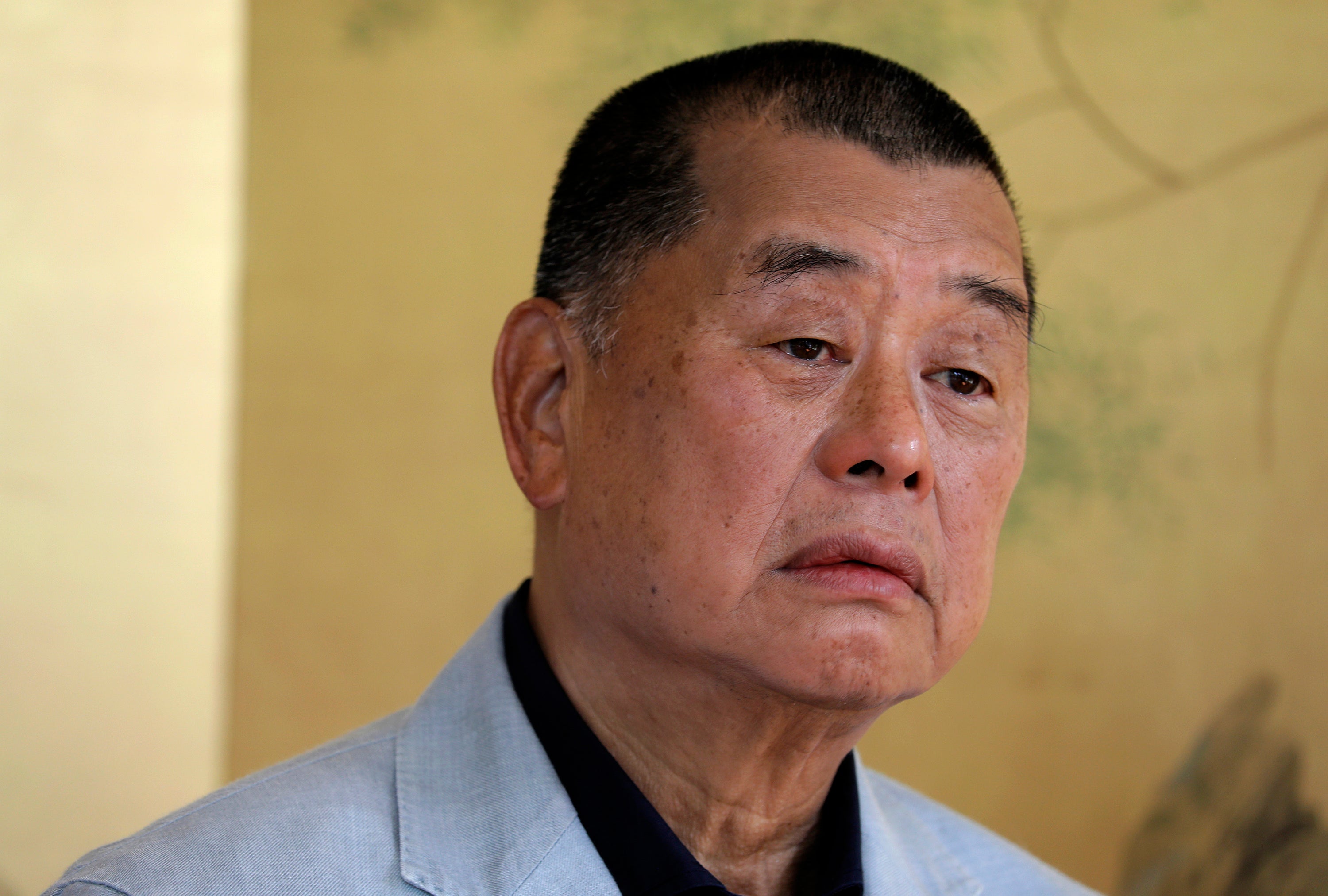Lam defends freezing of publisher's assets as safety measure
Hong Kong leader Carrie Lam is defending the freezing of pro-democracy publisher Jimmy Lai’s assets as a necessary move under the city’s new national security law to protect the safety of all Chinese people

Your support helps us to tell the story
From reproductive rights to climate change to Big Tech, The Independent is on the ground when the story is developing. Whether it's investigating the financials of Elon Musk's pro-Trump PAC or producing our latest documentary, 'The A Word', which shines a light on the American women fighting for reproductive rights, we know how important it is to parse out the facts from the messaging.
At such a critical moment in US history, we need reporters on the ground. Your donation allows us to keep sending journalists to speak to both sides of the story.
The Independent is trusted by Americans across the entire political spectrum. And unlike many other quality news outlets, we choose not to lock Americans out of our reporting and analysis with paywalls. We believe quality journalism should be available to everyone, paid for by those who can afford it.
Your support makes all the difference.Hong Kong leader Carrie Lam on Tuesday defended the freezing of pro-democracy publisher Jimmy Lai's assets as a necessary move under the city's new national security law to protect the safety of all Chinese people.
Lam told reporters the move was authorized under the sweeping law that was imposed on the city by Beijing last year and empowered authorities to “freeze suspicious assets involved that would undermine national security."
“It means the Hong Kong government is very serious and rigorous when dealing with national security matters, because it involves something that endangers national security, not just the safety of Hong Kong society, but also the safety of 1.4 billion Chinese people,” Lam said.
Critics say the national security law is meant to snuff out dissent in the semi-autonomous Chinese territory, while defenders say it intends to ensure those running the city are Chinese patriots committed to public order and economic development.
Lam has been the face of the crackdown on dissent, although she is believed to be acting entirely on orders from Beijing, whose Communist Party leaders have long regarded Hong Kong as a potential incubator of opposition that could spread through the country.
The freezing of Lai’s assets led the Hong Kong stock exchange to halt trading of shares in Next Digital on Monday. The company founded by Lai, who owns a 71% stake and is its controlling shareholder, publishes pro-democracy newspaper Apple Daily, which has seen advertisers abandon it as the government ratchets up pressure on dissenting voices in the city at the urging of leaders in Beijing.
Lai has been a high-profile voice in the the territory’s pro-democracy movement and is serving a 14-month sentence for his role in two unauthorized assemblies in 2019 when Hong Kong residents were involved in mass anti-government protests. Lai was among 10 people who pleaded guilty Monday to taking part in another unlawful assembly in 2019.
Last week, Apple Daily's Taiwan version said it would move online because “pro-China forces” had blocked access to advertising for its flagship Apple Daily and other publications in Hong Kong.
In recent months, police have arrested most of the city’s pro-democracy activists and have put prominent activists such as Joshua Wong and Agnes Chow behind bars. Most of the pro-democracy activists arrested are still in police custody, while others have sought asylum abroad.